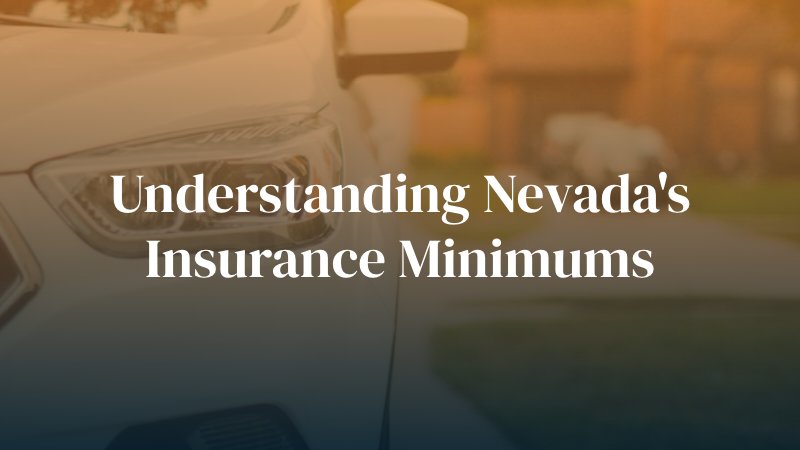
In Nevada, all motor vehicle drivers are legally required to carry minimum amounts of liability car insurance. The failure to do so is an offense that can result in penalties. If you get into a car accident in Las Vegas, knowing how the insurance process works can help you seek fair compensation for your losses.
What Is Car Insurance?
Car insurance is a legal contract between an insurance provider and the owner of a motor vehicle that provides financial protection in the event of a car accident. If the policyholder gets involved in a collision that causes losses such as property damage or medical expenses, the insurance company will cover certain costs in exchange for the policyholder paying a premium.
What Car Insurance Is Required in Nevada?
Every state has its own automobile insurance laws and required amounts of coverage. If you register a motor vehicle in Nevada, you must have evidence of carrying the mandatory types and amounts of liability insurance on the vehicle.
Currently, Nevada law requires the following:
- Bodily injury and death liability insurance: $25,000 for any one person and $50,000 for two or more persons in any one accident. This type of coverage pays for a victim’s medical bills, lost wages, pain and suffering, funeral costs, and other expenses related to the crash.
- Property damage liability insurance: $20,000 per accident. This insurance covers repairs to another person’s damaged property or replaces a totaled vehicle (one that is deemed a “total loss” based on the price of repairs) by paying for the full pre-crash value of the car.
These required types of insurance will pay for someone else’s losses, but not the policyholder’s. If desired, drivers can purchase additional insurance for greater coverage, such as collision, comprehensive, and uninsured or underinsured motorist insurance.
What Are the Penalties for Failing to Have Enough Insurance in Nevada?
The failure to carry at least the minimum required amounts of insurance can result in a fine of $250 to $1,000, vehicle impoundment, suspension of the vehicle registration until a reinstatement fee is paid, and a fee of $250 to get the license plates back. In addition, if it has been more than 90 days since the driver has had insurance, an SR-22 form may be required. This can lead to a much higher price for insurance.
Whose Car Insurance Pays for a Car Accident in Nevada?
Nevada is a fault-based or tort-based car insurance state, which means the person or party at fault for causing an automobile accident must pay for the wreck. The majority of states abide by this fault system, with only 12 that use a no-fault system. In no-fault states, all drivers file claims with their own insurers, regardless of fault. In Nevada, the injured victim must prove that the other driver is at fault to qualify for benefits.
How Does a Car Insurance Claim Work in Nevada?
When a car accident claim is filed, the insurance company will investigate to determine who is at fault. If it accepts a claim made against its driver, the insurance company will offer a settlement – an amount of money offered to the claimant to resolve the legal dispute. Otherwise, the insurer will deny liability and reject the claim.
You may benefit from hiring a car accident attorney in Nevada during your claim. A personal injury lawyer in Las Vegas can help you prove and support your case using compelling evidence against another driver. An attorney can also prevent an insurance company from taking advantage of you by handling settlement negotiations on your behalf. If you have been involved in a recent car accident in Las Vegas, contact Valiente Mott Injury Attorneys to request a free consultation.

